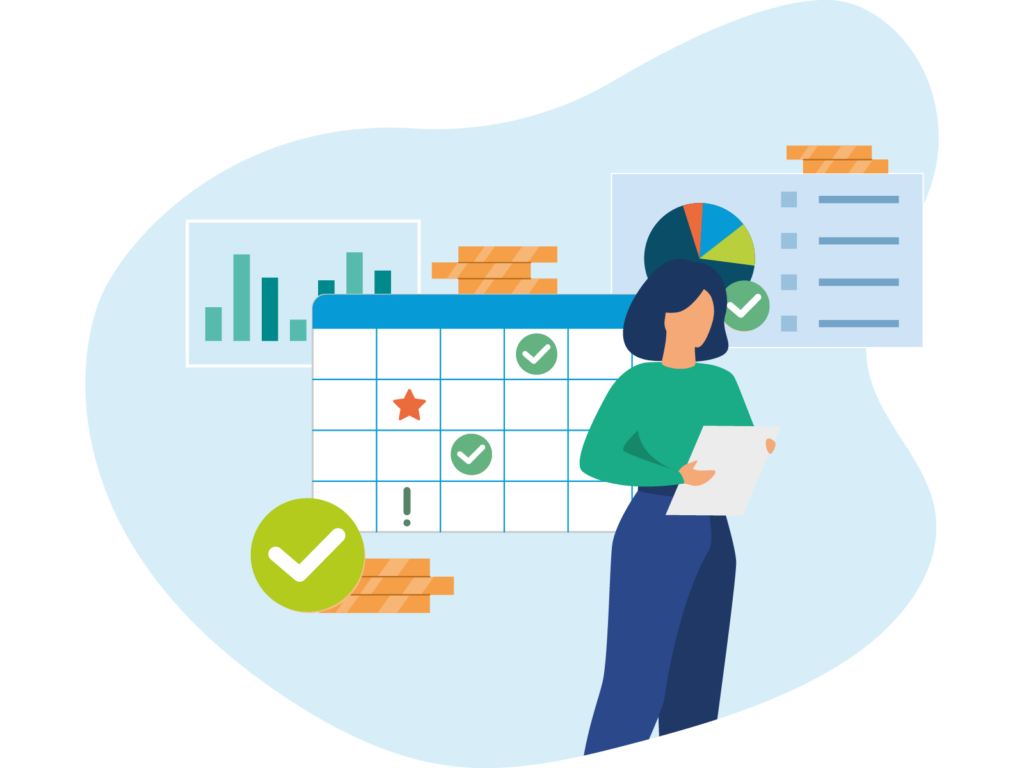How Lockdown has Changed Financial Management in Housing Associations for the Better
Lockdown has made remote working and working from home a necessity for housing organisations across the country. It has forced many people to adopt digital technologies and adapt their processes to ensure stability throughout the pandemic. For finance teams in housing associations this has highlighted a number of areas that can be improved not only for the duration of lockdown, but for the long-term running of the business, too.
Since the lockdown was announced, many people have been forced to work with technologies that they previously hadn’t used – virtual meetings, video calling and cloud-based co-working are all technologies that have been readily available for some time, but only now are organisations taking full advantage of their potential.
These tools are a useful way for teams to work together remotely – however, the necessity for home working has also inspired many organisations and finance directors to rethink their working processes on a much deeper level. For us at MRI, this is a particularly busy time as many finance directors are seeking digital solutions like MRI Housing Finance – Enterprise to allow their teams to work effectively from home as well as provide huge resource-saving efficiencies for the long-term.
An all-in-one solution
Financial management systems are designed to connect your team, simplify reporting, inputting and recording, and connect with the wider organisation to redistribute workload and reduce paperwork.
Using OpenAccounts as the core accounting engine, MRI Housing Finance – Enterprise provides an all-in-one solution, which centralises your data to ensure your whole team is on the same page, and provides flexible reporting required for key decision making at board level. The system integrates into any housing management software you’re already using, and can be used alongside eBIS, which allows for further streamlining of work processes.
Facilitating Remote Working
While remote working is essential during the COVID-19 pandemic, the ability to allow your teams to work remotely in the future can be incredibly beneficial. Over this period of lockdown, I’ve noticed teams working more efficiently than ever, with at least one financial director questioning why they invest in large office spaces when their team can work just as well, if not better, from home.
For many it has become clear that paper-based work processes do not work – many people aren’t able to access paper invoices or reports without being in the office. Even widely used systems like invoice barcoding aren’t viable even when staff are able to work in the office, due to the amount of resource required to maintain them.
A digital financial management system allows your whole team to work remotely by streamlining the digitisation process of invoices. With MRI’s OpenAccounts integrated EDM, pdf invoices can be dropped into the system, automatically scanned using optical character recognition, the relevant information extracted, and automatically inputted into the OpenAccounts system. This means no printing, adding barcodes or scanning, and is ideal for remote working situations.
Additionally, the system also works on an alert basis, sending tasks and email notifications that can be easily picked up team members wherever they are.
Clients who have already adopted the system are reaping the benefits throughout lockdown:
“For distance working and remote working, eBIS is a perfect tool to have in place. We’d had agile on the agenda for quite a while and wanted to make it possible for staff to work remotely, and the opportunities the current situation has presented will make it likely that we’ll work far more flexibly in future. We need the right workflows to support this, and eBIS is one of these.”
Andrew Crompton, Director of Finance and Resource at Habinteg
Long-term benefits
While it’s still unclear exactly how long remote working for office-based workers will be necessary, it can be difficult to justify an investment into a system that is only going to be used temporarily. However, the wider benefits of digitising your financial operations make it unlikely that, once implemented, you’d ever be returning to paper-based processes.
While the automation of invoices is useful for as long as the office is off-limits, it’s also an incredible time-saver, workload reducer and paperwork eliminator. When, in the past, invoices would need to be manually printed, barcoded, scanned and inputted, now it’s all done at the click of a button.
The process is so effective that housing association Onward managed to eliminate their average 1-week backlog in invoice processing and have significantly reduced the amount of administration and paperwork for their finance team since implementing the system earlier this year.
One of the most revolutionary elements of the system, however, is the shift in responsibility it brings across housing association departments. There’s been a shift in recent years towards budget holders within social housing being more financially accountable, spending more time managing their own budgets. eBIS makes self-service possible, handing the ability to raise purchase orders, file expense requests and manage suppliers to individual departments rather than leaving this to a central finance team. This allows for the devolution of financial responsibility to the wider organisation and helps the members of staff who are responsible for the money to become more finance-savvy, able to create and access the reports they need to become more financially oriented.
These benefits not only help your finance teams to keep on top of their workload, they also help to connect the entire organisation, making processes faster and more efficient across the board and inevitably allowing your housing association to deliver a better service to your clients, and service-users.
Making the Transformation
While lockdown has been difficult and frustrating in many ways, it has kickstarted the digital transformation of lots of housing associations across the country, allowing them to streamline their processes and work more effectively for the long-term. This is true both for organisations exploring finance process automation for the first time, and for those who’ve found a need to take a fresh look at existing systems.
At MRI, we find that housing organisations can struggle to get the most out of their existing financial systems, particularly if they’ve experienced staff turnover or structural change since they were first implemented. This can lead teams to believe that the system isn’t right for them, when in fact it’s far more likely that processes just need to be retooled to fit your changing needs.
Finance directors who are as yet undecided on making the investment into an all-in-one finance management system, or who think they might need to adapt their existing implementation to get more out of it, can speak to our community of existing clients to find out what other customers are doing and communicate their experiences, experiments and future plans. At MRI, we know our community is invaluable, and our customers agree – not only does it allow us to gather feedback and requests, but it allows organisations to learn from each other to get the most out of MRI Housing Finance – Enterprise, OpenAccounts and eBIS.
If you’re looking to implement a system to help your team work more effectively wherever they are, get in touch with MRI’s expert team of consultants.
Gaining Control of Procurement with Spend Management
Designed for MRI Open Accounts users, discover a new spend management tool from our partners Advanced. Supporting transparency and better management of your spend across suppliers, contracts and general procurement processes.

